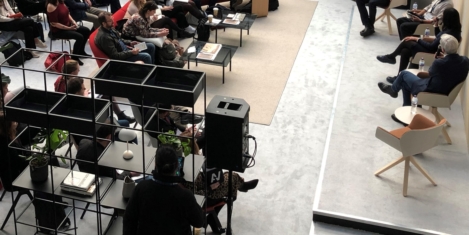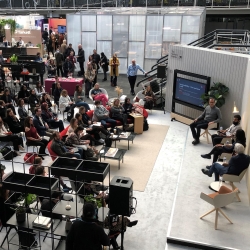March 2, 2023
Pipeline of women managers has stalled in wake of pandemic
 The leadership pipeline for women has hollowed out in the middle, according to a new study “Women in leadership: Why perception outpaces the pipeline—and what to do about it” from IBM Institute for Business Value (IBV) and Chief. The study of 2,500 organisations in 12 countries and 10 industries found a small increase in the number of women at the C-suite and Board level (now 12 percent for both), and an increase to 40 percent representation of women in junior professional/specialist roles (37 percent in 2021). However, the pipeline for top leadership positions still hasn’t recovered to pre-pandemic levels – 14 percent representation of women in senior vice president roles (18 percent in 2019) and 16 percent in vice president roles (19 percent in 2019). (more…)
The leadership pipeline for women has hollowed out in the middle, according to a new study “Women in leadership: Why perception outpaces the pipeline—and what to do about it” from IBM Institute for Business Value (IBV) and Chief. The study of 2,500 organisations in 12 countries and 10 industries found a small increase in the number of women at the C-suite and Board level (now 12 percent for both), and an increase to 40 percent representation of women in junior professional/specialist roles (37 percent in 2021). However, the pipeline for top leadership positions still hasn’t recovered to pre-pandemic levels – 14 percent representation of women in senior vice president roles (18 percent in 2019) and 16 percent in vice president roles (19 percent in 2019). (more…)



















 Any business that is looking to grow its consumer base or expand into new markets is likely to be relying on digital technology to a greater extent than ever before both in their operations and management. This also means that the
Any business that is looking to grow its consumer base or expand into new markets is likely to be relying on digital technology to a greater extent than ever before both in their operations and management. This also means that the 


 A few of you may already know this story. It was some 15 months ago and three old friends met up for the first time in quite a while (well, we had been through lockdowns etc). Having caught up with each other’s news, the subject turned to industry journals, what the three friends felt the market was missing and the possibility of collaborating in the not too distant future. That conversation occurred at the inaugural
A few of you may already know this story. It was some 15 months ago and three old friends met up for the first time in quite a while (well, we had been through lockdowns etc). Having caught up with each other’s news, the subject turned to industry journals, what the three friends felt the market was missing and the possibility of collaborating in the not too distant future. That conversation occurred at the inaugural 












February 14, 2023
UK businesses are out of touch with the real sources of employee stress
by Nick Gold • Comment, Wellbeing